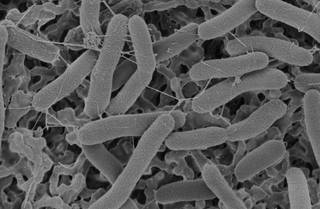Humans aren’t the only ones who have harnessed the power of electricity. Some bacteria do this, too, by producing structures that extend from their surface like wires to transfer electrons over distances. Now, scientists at NASA’s Ames Research Center in California’s Silicon Valley are exploring this phenomenon to see if they can make use of these special microbes to perform essential functions on future space missions — from generating electricity to treating wastewater or producing medicines. With an experiment launching to the International Space Station, researchers will see whether the microbes work the same in space as they do on Earth.
To appreciate the rare abilities of the bacterium in question, called Shewanella oneidensis MR-1, you have to know what moving electrons around has to do with life. The transfer of electrons from one molecule to another is essential to all organisms, because it allows for the production of energy they need to survive. One reason that humans depend on oxygen is that this energy-producing chain reaction inside our cells is powered by transferring electrons to molecules of oxygen. The same goes for anything else that breathes oxygen, including Shewanella. But what makes this microorganism special is that it also has a back-up system that kicks in when the environment is low on oxygen. Shewanella keeps calm and carries on producing energy by using metals, like iron and manganese, instead.
